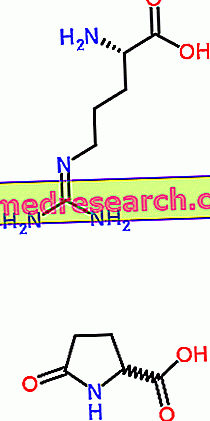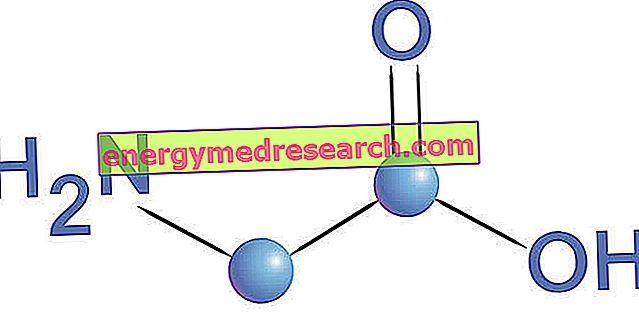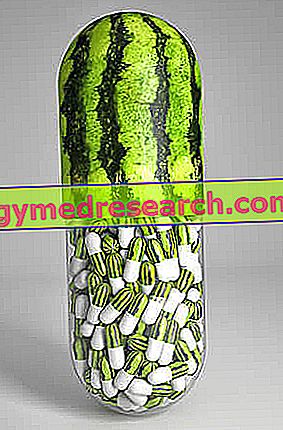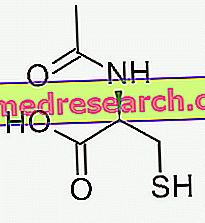What's this Arginine Piroglutamate is the Piroglutamate salt of the amino acid Arginine. This salification would improve the central tropism of Arginine and Piroglutamate itself, making it useful in safeguarding some important brain functions. Indications Why is Arginine Piroglutamate used? What is it for
Category sports supplements
Generality Glycine is the smallest of the 20 amino acids commonly found in proteins. With no chiral center, it belongs to the category of non-essential amino acids; it can in fact be abundantly synthesized by the human organism. Glycine is easily taken through the diet, both through foods of animal origin, such as fish and egg white, and through products of vegetable origin, such as soy and other legumes
Generality Generally, glutamine peptide means a mixture of two dipeptides: L-alanyl L-glutamine : derived from the union of glutamine with the amino acid alanine and L-glycyl-L-glutamine : derived from the union of glutamine with the amino acid glycine. Initially used in the clinical field, in particular in total parenteral nutrition, dipeptide glutamine has gradually become a space also in the world of nutritional integration, thanks to the better availability in a watery environment
The growing amount of scientific articles on the ergogenic and health properties of individual amino acids on the one hand, and the increasing availability of internet sites dedicated to the trade of these raw materials on the other, pushes many amateur athletes to buy these products in pure form. By attending the forums of the sector, for example, it is common to come across reading blends (mixtures) formulated by bodybuilding enthusiasts with the aim - often too optimistic - of increasing their performance
Generality L-citrulline, or more simply citrulline, is a ubiquitous alpha-amino acid, present both in the human organism and in many plant species from which it is extracted. Its name recalls the richest plant species of this amino acid, such as watermelon, watermelon, melon and other fruits belonging to the family of cucurbits
Introduction It is known how physical exercise - especially when it involves high-intensity eccentric movements - can generate a general state of muscle soreness, classically defined as delayed-onset muscle soreness or DOMS , within the next 24-48 hours. Despite the specific etiology of DOMS still remains unclear, at the moment the biochemical changes of the muscle subjected to physical exercise seem to be the most quoted in the genesis of this condition
Generality Ornithine alpha-ketogluratate - more briefly referred to as OKG - is a salt consisting of a non-protein amino acid, ornithine, and a protagonist of the Krebs cycle, alpha-ketoglutarate. Initially used both in enteral and parenteral nutrition to counteract any cachectic states or to facilitate post-surgical recovery, ornithine alpha-ketogluratate later appeared, not without criticism, also in the sports context
Generality N-Acetylcysteine - classically called NAC or more simply Acetylcysteine - is the N-Acetyl derivative of the most common amino acid L-Cysteine. Acetylcysteine - chemical structure Taken in the form of supplement, rather than drug therapy, N-Acetylcysteine has proved useful both in cases of acute paracetamol intoxication, and as an antioxidant, mucolytic and cytoprotector. Among the
(by Roberto Eusebio, absolute national champion of body fitness) Protein supplementation is recommended for a certain category of people, for example: the body builders who prepares marathons those who do not eat meat and fish by choice or because they are not palatable to these foods. Based on the balanced and effective integration, proteins can be classified as follows: - Whey protein (high biological value - VB = 100) Obtained by ultrafiltration, obtaining about 6% fat and 80% protein; by microfiltration with values obtained of over 80% protein and 1% fat; for ion exchange: they are the be









